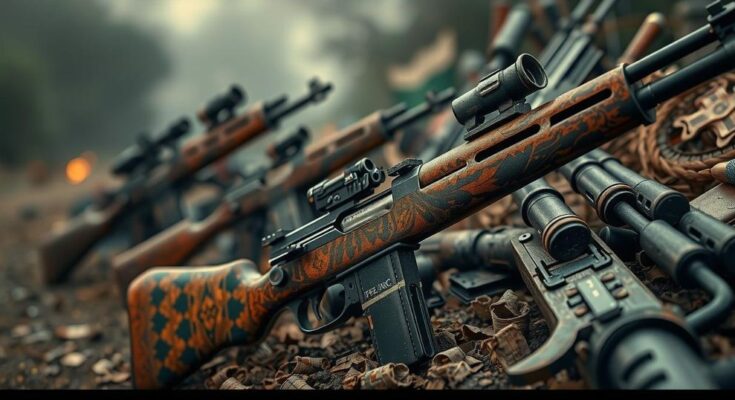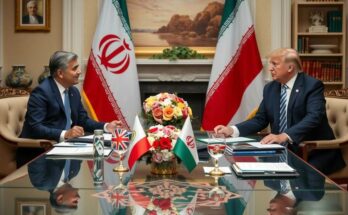Amnesty International has revealed that French military technology is being used by militia factions in Sudan’s civil war, violating a UN arms embargo. The RSF is reportedly employing vehicles equipped with the Galix defense system. The organization has called for an immediate halt to arms supplies from France to the UAE, highlighting concerns over potential human rights violations amid ongoing conflict.
Amnesty International has reported that French military technology is being utilized in Sudan’s ongoing civil conflict, which contravenes a United Nations arms embargo. The organization stated that the Rapid Support Forces (RSF) militia is operating vehicles equipped with French defense systems in the Darfur region amidst clashes with the Sudanese army. Amnesty’s Secretary General, Agnès Callamard, emphasized that their research confirms the active deployment of French-manufactured weaponry in Sudanese combat operations. Despite these serious allegations, French authorities have yet to address the claims, while the United Arab Emirates (UAE) has previously denied supplying arms to the RSF.
The Galix defense system, produced in France by manufacturers KNDS and Lacroix, is designed for the ground forces to mitigate close-range threats. According to Amnesty, these weapons risk being employed for severe human rights violations, prompting the organization to appeal to the French government to halt the supply of such systems to the UAE. The organization has presented verified images of vehicles, displaying the Galix system, that have been destroyed in the conflict. Amnesty insists that if France cannot guarantee that its exported arms will not be redirected to Sudan, it must refrain from authorizing such transfers.
The UN initially enforced an arms embargo in Darfur in 2004, responding to allegations of ethnic cleansing targeting the region’s non-Arab population. Amnesty International advocates for an expansion of this embargo across all of Sudan and calls for enhanced monitoring to curb the ongoing civil war that erupted last year. The organization urges all nations to cease any form of arms supply, direct or indirect, to Sudan’s warring factions. The RSF, commanded by General Mohamed Hamdan Daglo, has been engaged in fierce combat with the regular army led by Abdel Fattah al-Burhan since April 2023, stemming from a power struggle between former allies. Both factions face accusations of perpetrating war crimes, exacerbating the humanitarian crisis in Sudan, which has resulted in thousands of fatalities and millions displaced.
The conflict in Sudan has roots in political and ethnic tensions, particularly in the Darfur region, where multiple factions have engaged in violent confrontations over the years. The civil war that erupted in April 2023 marked a significant escalation in hostilities between the RSF and the Sudanese Army. The UN’s arms embargo was initially put in place due to severe human rights violations in Darfur. Amnesty International plays a critical role in monitoring and reporting human rights abuses and violations of international laws in conflict zones, thus drawing attention to the implications of military technology exports in such areas.
In summary, Amnesty International’s findings highlight the serious implications of French military exports in the context of the Sudanese civil war, emphasizing the violation of the UN arms embargo. The ongoing conflict, marked by accusations of war crimes and ethnic cleansing, raises urgent concerns regarding human rights violations. The call for international accountability in arms transfers, particularly by France and the UAE, underscores the need for stringent safeguards to prevent the misuse of military technology in conflict zones like Sudan.
Original Source: www.bbc.com




